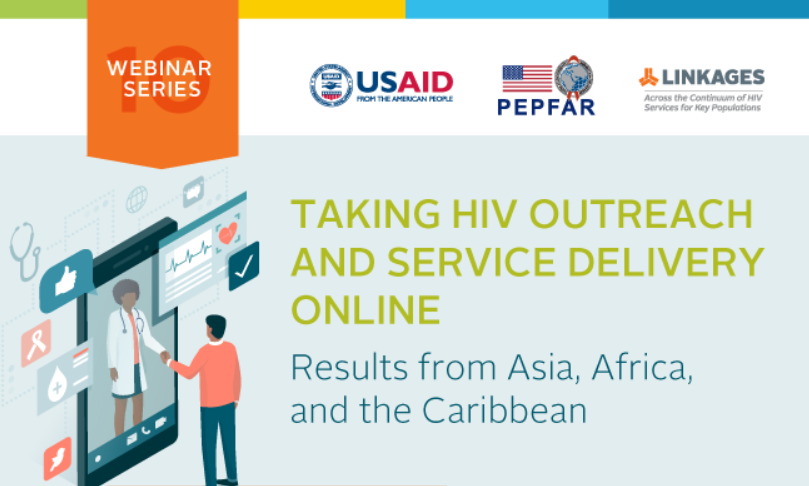Event Date
Webinar hosted by the LINKAGES project as part of the Key Populations: Evidence in action series.
To access the audio recording of the webinar, please click here.
On September 18th, the USAID– and PEPFAR-supported LINKAGES project hosted the tenth webinar in a webinar series entitled Key Populations: Evidence in Action. This webinar explored strategies for safely and effectively using online and mobile platforms to accelerate progress toward epidemic control among key populations. Presenters shared their experiences implementing a range of innovative online outreach and marketing approaches to support clients to access HIV testing, pre-exposure prophylaxis (PrEP), and antiretroviral treatment services.
Ben Eveslage, FHI 360/LINKAGES
Introduction
Abrahim Simmonds, LINKAGES Jamaica
Scaling and standardizing community-based online HIV outreach for HIV testing in Jamaica
Rena Janamnuaysook, Tangerine Community Health Centre & Thai Red Cross AIDS Research Centre
Engaging Thai transgender social media influencers to support clinic uptake of HIV prevention, care, and treatment services
Denis Nzioka, Kenyan Community Advocate & Social Influencer
Eric Mwanzia, Minority Persons Empowerment Program (MPEG)
HIV services a click away! Online booking for HIV testing, PrEP, and HIV treatment initiation in Kenya
This webinar series is intended to be a platform for (1) sharing state-of-the-art knowledge, emerging evidence, and promising practices for achieving greater impact on the HIV epidemic through programs for key populations; (2) addressing pressing questions and controversial issues from the perspective of key population experts and community members; and (3) fostering dialogue among a broad set of partners working in key-population-focused research, programming, and advocacy.
The webinars will cover a range of topics, including introduction and scale-up of HIV self-testing and pre-exposure prophylaxis for key populations; cascade monitoring and data use; information and communication technology-based interventions; effective strategies for addressing violence, stigma, and discrimination; differentiated models for delivering antiretroviral therapy; and community empowerment.
This webinar series is open to anyone interested in key populations, including program implementers, researchers, policy-makers, advocates, funders, and community members.

